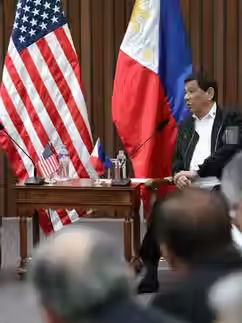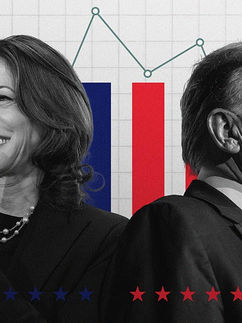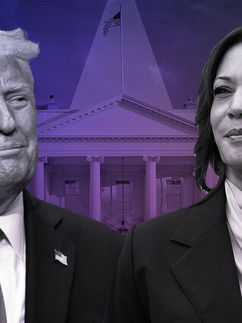Hope, Hype and Hard Realities: What Lies Ahead for Pakistan's Political Future?
Marina Daley

The February 2024 Pakistani Election
Pakistan’s recent election on 8th February 2024 proved dramatic, with accusations of vote manipulation and much uncertainty regarding who would form government. Candidates from the Tehreek-e-Insaf (PTI) party, who were forced to run as independents, won most seats, but lacked a majority. Running as independents, as they were previously banned from using their iconic cricket bat electoral symbol - an important marker in a country with forty percent illiteracy rate, this was a surprising success for PTI.
Finally, on February 21st , a coalition government was formed by two of Pakistan’s political dynasties - Pakistan Muslim League-Nawaz (PML-N) and Pakistan People's Party (PPP), alongside minor islamic parties. PML-N and PPP have dominated Pakistan’s politics since a 1958 military coup, with PTI only becoming a major political contender in 2018. PML-N’s Shehbaz Sharif was confirmed as Prime Minister, having previously been in the role from 2022 to 2023. PPP’s Asif Zardari took the ceremonial role of President. The election outcome was heavily influenced by the military, who have historically determined who would be in power. With the Election Commission complicit in vote manipulation - changing votes with fake votes, the outcome of the February election was clearly no different. This resulted in PTI protests over election rigging throughout Pakistan, although PTI itself benefitted from election rigging in its 2018 election win.
The continued dominance of the PML-N and PPP through their power sharing and the military’s involvement in the elections demonstrates a continuation of Pakistan’s historical electoral trajectory, although there was hope that the PTI would win against all odds. Overall, the election reaffirmed the key political dynamics of Pakistan; however, the popularity of PTI creates uncertainty and instability around Pakistan’s political future as it demonstrates discontent with the status quo.
Who is PTI’s Imran Khan and why is PTI so popular?
Imran Khan has been a popular figure in Pakistan for decades, as a beloved cricket star who led Pakistan to its only Cricket World Cup, before purposefully shifting his image from a playboy to a religious conservative as he entered politics. He established PTI in 1996, which became one of the major Pakistani political parties, and was Pakistan’s Prime Minister from 2018 to 2022 on a platform based on reform and anti-corruption.
Khan and the 2018 Election
The 2018 election was a contest between Khan’s PTI and ruling PML-N, disgraced former Prime Minister Nawaz Sharif’s party, who was jailed on corruption charges before the election. Khan’s populist campaign stance against the corruption and misgovernment of the Bhutto family, associated with PPP (who placed third in the elections), and the Sharif family, associated with PML-N, made him very popular with the Pakistani public. Khan also received support from the military, who, working with the Supreme Court to bar Nawaz Sharif from public office, charged him with illegally influencing the outcome of the election. Sharif had agitated the military as he attempted to reduce the role of the military in politics, through attempts to remove its influence in foreign and security affairs.
Due to PTI’s limited popularity in 2018, when it won the most seats, there were suspicions around its victory, with accusations of vote rigging rife. Once in power, Khan attempted to undermine military decision-making similarly to Sharif, through pushing for a more independent foreign policy beyond following the United States, and interfering in the selection of the next Army chief. Although popular with voters, he was removed from power before he could finish his term through a no confidence motion, led by a united opposition coalition who claimed he failed to revive the economy, referencing mounting inflation and ruinous debt. Although unfounded, Khan claimed that the United States was involved in a “regime change” conspiracy to topple his government.
Khan and the 2024 Election
During the recent elections, Khan was imprisoned on corruption charges to disqualify him from running, similar to Sharif’s ordeal in the 2018 elections. Although there were numerous attempts to discredit PTI’s popularity among the public, such as pre-poll rigging and PTI’s cricket bat electoral symbol being banned ahead of the election, PTI was ultimately able to win the most seats.
The PTI’s use of technology was seen as the key driver of their election success. Even from jail, Khan reached voters through virtual rallies and an AI-generated speech using his likeness. His connection with voters has resulted in them rallying for him prior to the no-confidence motion, before and after the 2024 election, and another more recent protest on the 10th March, which has resulted in several civilians arrested. His popularity is linked to his refusal to align with other parties, representing them as corrupt, appealing to the populace who are fed up with the dominant major parties. Regardless of the military’s crackdown of PTI, the continued voter support for PTI seemed to indicate a hopeful change in the military’s power over Pakistan’s politics; however, the formation of the coalition government demonstrates otherwise.
Hybrid Model of Governance
The election outcome demonstrates the key players who have dominated Pakistani politics. Since independence in 1947, no democratically elected Prime Minister has completed a full five-year term. It has been claimed that Pakistan is only nominally a democracy, reflecting a hybrid regime, where democratic traits are combined with autocratic features, such as regular electoral fraud. Not only has the military determined the electoral outcome, it has also often interfered directly, with four coups between 1958 and 1999.
Historically, two main families have ruled Pakistan over the past 50 years, with interludes of military rule- the Bhutto family, associated with the PPP, and Sharif family, associated with the PML-N. The 2018 election outcome, which saw the rise of PTI, was attributed to military manoeuvring, as they limited Sharif’s ability to run for Prime Minister, assisting Khan in his victory. The Pakistani judiciary is another influential player, which has unpredictably shifted from cooperation to antagonism with the military. For the 2024 elections, the Supreme Court stripped PTI’s election banner, while in 2023, ordered Khan’s release when he was arrested. Whilst it holds a crucial role in political decisions, the judiciary is corrupt and its decision-making is influenced by power grabbing and alliance-formation, making it an unreliable ally for the military. Although the military has admitted that it has interfered in politics, and claimed it would no longer intrude in 2022, the new federal cabinet suggests otherwise. Muhammad Aurangzeb, with no political history, is the Finance Minister, and Mohsin Raza Naqvi, who is close to the military establishment, is Interior Minister. This patronage relationship between the military and dominant political parties demonstrates one of the key barriers to true democracy in Pakistan.
The Future?
Considering widespread popular dissatisfaction, there was hope that the 2024 elections would change the dominance of traditional political actors, especially the military, and make Pakistan more democratic. Considering Pakistan’s current issues, this election was especially important. Pakistan is in a severe economic crisis, with inflation at 22% and potentially facing a sovereign debt default, with only sufficient foreign exchange reserves for 2 months of essential imports. Pakistani citizens, influenced by these economic pressures, voted accordingly. With its massive debt obligations and currently undergoing a stabilisation program with the International Monetary Fund (IMF), the current coalition government will have to follow through on the strict conditions demanded by the IMF, which risks potential for political instability.
With 64% of the population under the age of 30, there is a need for effective economic policy that fosters economic growth and creates jobs for this population. With young people extensively supporting Khan, rallying them through social media, there is pressure on the coalition government to govern effectively, as Khan and PTI’s popularity will increase with each policy misstep. As millions of young voters unite behind his PTI party, this will be a continued obstacle for the coalition government, where PTI can take advantage of popular discontent to create further political instability. Khan’s ability to mobilise voters, demonstrated through the 2022 Azadi protest march initiated after an assassination attempt on him, and the 2023 mass demonstrations against Khan’s corruption charges, which led to destruction of military buildings, ensures that Khan will continue to remain a decisive figure in Pakistani politics. The coalition government will have to work on improving its legitimacy to push through the long-term reforms needed to improve the state of the country.
Conclusion
Pakistan's recent election has underscored the enduring dominance of traditional political actors, particularly the entrenched power of the military in shaping the country's political landscape. Although the lead of independents linked to PTI in the recent elections initially appeared to offer a challenge to the status quo, the outcome of the election has reaffirmed the influence of established political dynasties which have long been associated with the military's patronage. The hopes for change and widespread dissatisfaction among the populace that led to PTI’s popularity reflect desperate desires for solutions to pressing economic challenges and a young population demanding effective governance and meaningful reforms. Though who would govern has been decided, Pakistan’s future remains uncertain.
Marina is a recent Master of International Relations graduate from the University of Melbourne, where she also completed a Bachelor of Arts in Economics and Politics. Currently based in Madrid, where she completed an exchange year at the Autonomous University of Madrid. Her interests are in political economy, specifically trade, and sustainability. She completed an internship with EY in their sustainability and climate change team and was a member of AMP’s Youth Advisory Committee.

















Comments